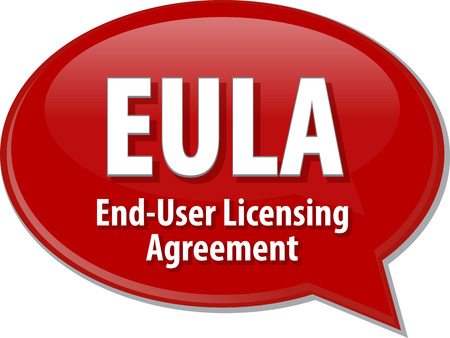Mallory King - February 26, 2017 - Drafting EULA TErms for App Store, Internet Law

End User License Agreements (“EULAs”) are an App’s equivalent to a website’s Terms of Use Agreement. EULAs are technically defined as “the contract between the licensor and purchaser, establishing the purchaser’s rights to use the software.” Designed to limit the App developer’s liability, platforms such as Apple’s iTunes Store will not even allow Apps to be launched without a EULA in place.
EULAs can contain a number of clauses geared toward describing the App, laying out the acceptable and prohibited uses, and limiting the creator’s liability. Apple sets out specific minimum terms that must be contained within an App’s EULA before the App can be launched to the iTunes store. Apple’s minimum requirements include:
Typically, App related lawsuits are successfully blocked by the EULA. As one author put it, “User sues company; company cites EULA barring such lawsuits; judge grants company’s motion to dismiss End of story.” However, that is not always the end of the story. Due to the click-wrap nature of EULAs (i.e. the user scrolls through the EULA and simply clicks “I agree”), some Courts have found EULAs to be contracts of adhesion.
Still other Courts have chosen to disregard the EULAs liability limiting provisions and allow lawsuits, such as a lawsuit brought against Microsoft related to the Windows 10 Update that rendered Plaintiff Teri Goldstein’s computer useless. Microsoft’s EULA only allowed for arbitration, but Teri Goldstein successfully netted $10K in a California Small Claims court due to the haste in which Microsoft launched its Windows 10 Update. As she said, “Microsoft cannot just say, ‘Read our User agreement form, we hold no responsibility, you cannot sue is and go away.”
A well-developed App and well-crafted EULA can prevent outcomes such as the one described above. To be sure that a EULA is sealed as tight as possible, enlisting the assistance of an internet law attorney is the best option. If you are developing an App and need assistance drafting a EULA, contact Traverse Legal today to see how we can help get your App legally protected and ready for launch.